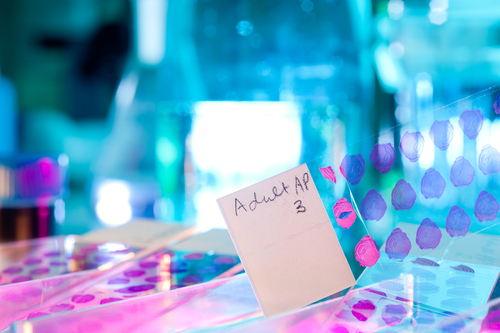Researchers at the University of Texas at Austin developed an automated handheld device that accurately identifies cancerous tissue in as little as 10 seconds. The device, called MasSpec Pen, is designed to guide doctors during surgery by telling them which tissues to remove. That could improve the excision of cancer and reduce the chances of recurrence.
This new tool’s effectiveness was reported in the study, “Nondestructive tissue analysis for ex vivo and in vivo cancer diagnosis using a handheld mass spectrometry system,” published in Science Translational Medicine.
“If you talk to cancer patients after surgery, one of the first things many will say is, ‘I hope the surgeon got all the cancer out,’” Livia Schiavinato Eberlin, assistant professor of chemistry at UT Austin and lead author of the study, said in a university news release. “It’s just heartbreaking when that’s not the case. But our technology could vastly improve the odds that surgeons really do remove every last trace of cancer during surgery.”
Currently, cancer diagnosis relies on tissue analysis and identification of cancer biomarkers, measures that are laborious and time-consuming, and at times, inaccurate. During surgery, it may take longer than 30 minutes for a pathologist to prepare and analyze a sample for signs of cancer. This can have major implications because a patient is at risk of infection and anesthesia must be prolonged.
Furthermore, in certain cancers, up to 20% of samples have unreliable results, which compromises the decision-making process.
But the MasSpec Pen may be able to improve the process. It detects cancer tissue by analyzing small molecules called metabolites in a given sample. Because these molecules are products of the cell’s metabolism, each cancer type has a unique set of metabolites, which are like cancer fingerprints.
When in contact with the tissue, the pen absorbs a small amount of those compounds and reads them, displaying either “Normal” or “Cancer” on a computer screen.
Tested on 253 samples collected from cancer patients — including normal and cancerous tissues from the breast, lungs, thyroid, and ovaries — the tool provided a diagnosis in approximately 10 seconds, which is 150 times faster than current methods. Equally impressive, the pen accurately discriminated cancer from healthy tissues in 96.3% of cases.
“When designing the MasSpec Pen, we made sure the tissue remains intact by coming into contact only with water and the plastic tip of the MasSpec Pen during the procedure,” said Jialing Zhang, research associate at Eberlin Lab at UT Austin and first author of the study. “The result is a biocompatible and automated medical device that we are so excited to translate to the clinic very soon.”
The team has already tested the pen in animal models and plans to use it on human patients in 2018. The team and the university have filed a U.S. patent application for the pen technology and are working toward obtaining patents worldwide.
The development of the MasSpec Pen was funded by the UT Austin, the National Cancer Institute of the National Institutes of Health, and the Cancer Prevention and Research Institute of Texas.

